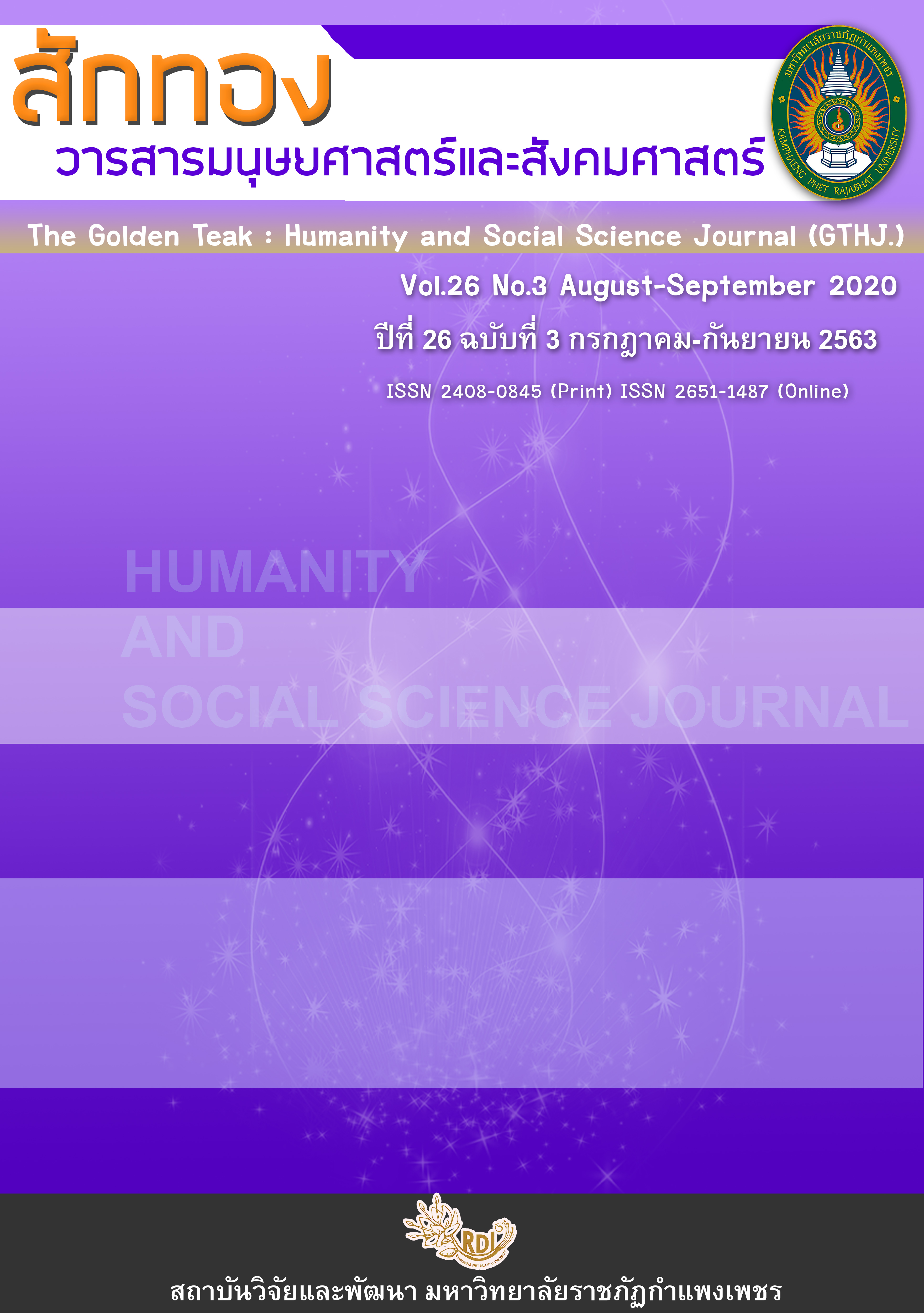Research and Development of the 21st Century Learning Measurement and Evaluation Model towards Education 4.0
Main Article Content
Abstract
The purposes of this research were: 1) to study the basic information about a development of the 21st Century learning measurement and evaluation, 2) to construct and examine an efficiency of the 21st Century learning measurement and evaluation model towards Education 4.0, 3) to try out and explore the results of using learning measurement and evaluation model, and 4) to examine students and teachers’ satisfaction towards the 21st Century learning measurement and evaluation model towards Education 4.0 The research procedure comprised 4 steps for research and development processes: Stage 1 studying the basic information: (1) analyzing O-NET average scores of Prathom 6 students from participating schools in academic year 2017, (2) exploring the needs assessment of teachers for developed the 21st Century learning measurement and evaluation, 20 teachers in participating schools and 20 teachers under Phetchabun Primary Educational Service Area Office 1, and (3) synthesizing methods to construct the 21st Century measurement and evaluation model, suggested from 5 experts’ interview. Stage 2 constructing and analyzing the quality of the 21st Century measurement and evaluation model towards Education 4.0. Stage 3 Implementing the developed model; 257 students tested with achievement test and evaluating O-NET average score of grade 6 students in the academic year 2018 of the participating schools. At stage 4, 257 students and 40 teachers rated their satisfaction towards the 21st Century learning measurement and evaluation model towards Education 4.0. The research findings revealed as follows: 1. The study of basic information found that: 1.1 Regarding the O-NET’s average scores, in academic year 2017, of Prathom 6 students from the participating schools, most were lower than the average score 50.00 1.2 The highest needs assessment for analysis of PNImodified was the use of technology for measuring and evaluating learning (PNImodified = 2.00), constructed online test (PNImodified = 1.89) and measured focusing on authentic assessment, performance and portfolio assessment (PNImodified = 1.16) respectively 1.3 The experts suggested that for the 21st Century, technology and versatility of testing should be applied as well as using an authentic assessment, focusing on practice tests, being evaluated by multiple groups including students, peers, and parents, and also an implementation of research’s findings into teaching. 2. The model of the 21st Century measurement and evaluation towards Education 4.0 consist of 1) knowledge assessment with online tests and skills assessment with performance test, portfolio and authentic assessment. 2) Implementation of results to placement, diagnostic, formative, and summative assessment and to be used as information for planning to measurement and evaluation of learning in the future. 3. Results of implementing the 21st Century measurement and evaluation models towards Education 4.0 showed that: 3.1 In academic year 2018, the academic achievement scores of particular schools was significantly higher than criterion score at .05 level of significance. 3.2 In academic year 2018, Prathoom 6 students, from the participating school, got the O-NET’s average scores higher than the average score 50.00. 4. The students and teachers had the overall satisfaction toward the 21st Century measurement and evaluation model towards Education 4.0 at a high level.
Article Details
บทความที่ได้รับการตีพิมพ์เป็นลิขสิทธิ์ของวารสาร สักทอง : วารสารมนุษยศาสตร์และสังคมศาสตร์ สถาบันวิจัยและพัฒนา มหาวิทยาลับราชภัฏกำแพงเพชร
ข้อคิดเห็นใดๆ ที่ปรากฎในวารสารเป็นวรรณกรรมของผู้เขียนโดยเฉพาะ ซึ่งมหาวิทยาลัยราชภัฏกำแพงเพชรและบรรณาธิการไม่จำเป็นต้องเห็นด้วย
References
21st Century. Veridian E-Journal, Silpakorn University, 10(2), (1856-1867)
Janjeen,Ch., Suwan, J., & Thabsisod, I. (2006), Teacher and school development for
participator professional development school of Uttaradit Rajabhat University.
Uttaradit : Faculty of Education, Uttaradit Rajabhat University.
Pakdeejit, Y. (2017). Active Learning and the 21th Century Skills. [Online]. Available :
http://apr.nsru.ac.th/Act.../27022015155130_article.docx. [2017, March 26].
Parkpoom, K. (2015, January-April). The Development of the Essential Competency Model for
Teachers in Basic Education Schools to Prepare for ASEAN Community. The Golden
Teak : Humanity and Social Science Journal. 21(1),112
Vetsuwan, S. (2015). A development of the quality management organization model on
primary educational service area office. Bangkok : Dissertation, Doctor of
Philosophy in Educational Administration Program at North Bangkok University.
Sangprateeptong, V. (2018, January–June). Guidelines for Assessment of Learning Outcomes
in the 21st Century. Ubon Ratchathani Journal of Research and Evaluation, 7(1),
1-10.
Thailand Development Research Institute (TDRI). (2014). TDRI’s Report : Strategic Planning of
Basic Educational reform to take accountability. [Online]. Available : http://www.
tdri.or.th/wp-content/uploads/2014/06/wb103.pdf [2017, August 25].
The Partnership for 21st Century Learning. (2009). Framework for 21st Century Learning.
[Online]. Available : http://www.p21.org/our-work/p21-framework [2009, July 3].


